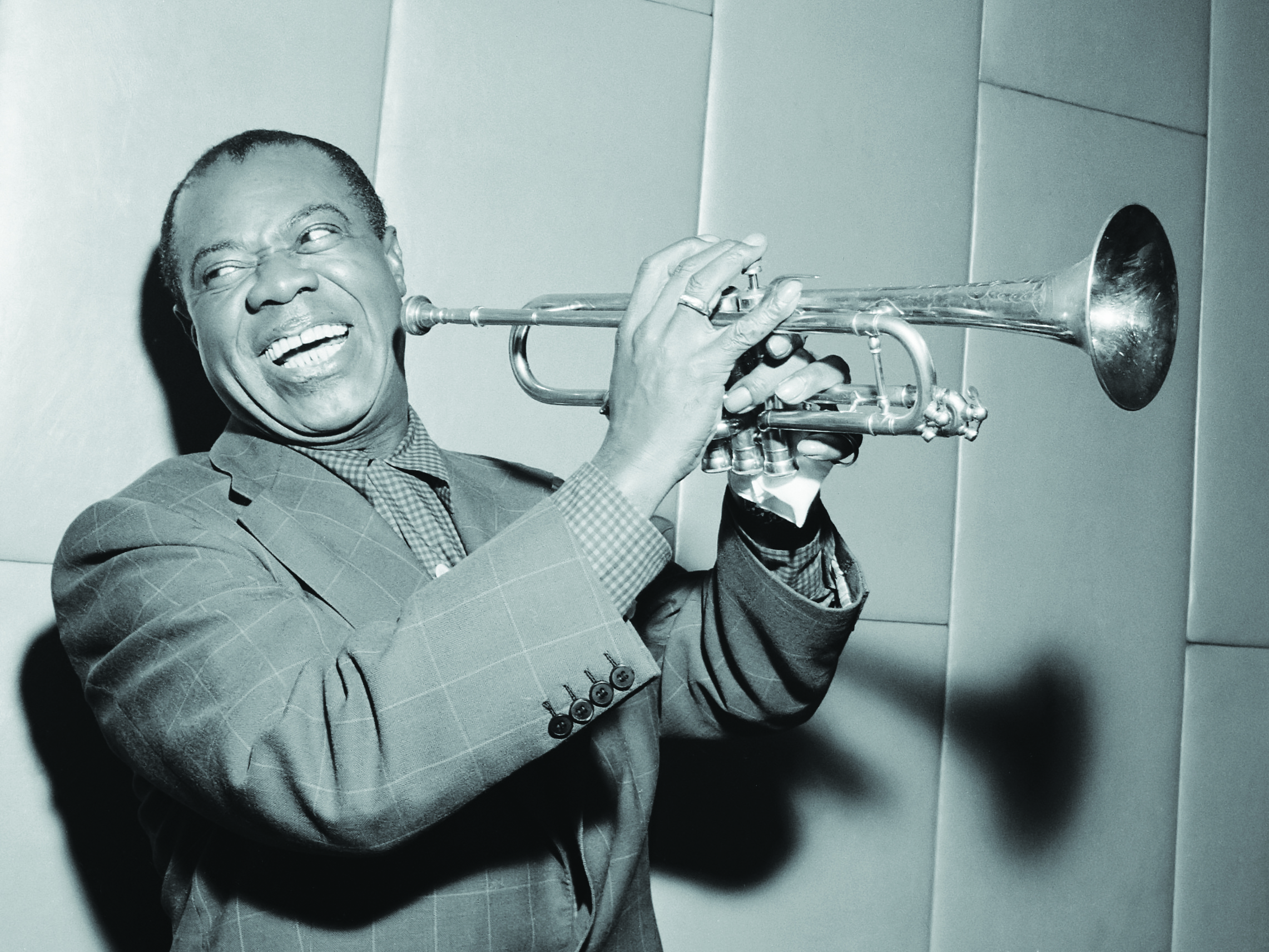New Orleans would never have produced its most famous musical expression had it not been for a confluence of seemingly unrelated events. Difficult economic times and a growing interest in popular music would fashion a springboard for an assortment of musical styles to coalesce into what would become a uniquely New Orleans kind of music. However, the popularity of traditional New Orleans jazz would be short-lived, as Louis Armstrong, one of the Big Easy's most famous sons, in an ironic turn of events, would shift jazz away from the ensemble work that defined it by ushering in the Age of the Soloist, which instead emphasized individual performances. And in the process, jazz would expand even beyond New Orleans.
A Brief History of Notable Jazz Musicians
During the late 19th and early 20th centuries, an interest in popular music took the nation by storm. And traditional African-American music would form the backbone of these emergent genres. Played previously by former enslaved people or, in the latter half of the 19th century, by poor sharecroppers, the blues would be the first to find a commercial outlet. Developed in the rural South, the blues produced a number of noteworthy musicians, including the famous Robert Johnson, who claimed that he sold his soul to the Devil in order to play the guitar. Another outstanding musician, Scott Joplin, would find great success as the country's preeminent composer of ragtime. Both of these genres would influence the development of jazz.

Then, in New Orleans, musicians started experimenting with brass band and string ensembles by incorporating the musical structures of ragtime and the blues into their compositions. These experiments, which began in the early 1900s, would come to form the basis of jazz. And many believe that the first musician to merge these different styles was Charles "Buddy" Bolden. Though his past and even his career are shrouded in mystery, and his life marked by tragedy—he spent the last 24 years of his life in an insane asylum, having been committed there for schizophrenia—Buddy Bolden still stands tall as one of the great legendary figures of jazz, as he, more than any other musician, is credited with its invention. Sadly, very little is still known about his life, and he didn't leave behind any recordings.
But jazz was a controversial creation among the musicians of New Orleans. In fact, it divided the Big Easy into two camps: black musicians from uptown who became jazz's first practitioners, and the downtown Creoles of color—New Orleanians of mixed race—who were mostly classically trained, and contemptuous of jazz and all "hot" music, as popular tunes were called. These black Creoles thought that jazz was vulgar, and associated it with musicians who lacked a formal musical education. But while it was true that the uptown musicians often couldn't even read music, what they lacked in formal training they more than made up for in skill and in emotional intensity, making them much more popular.

Jelly Roll Morton
A Shift in Jazz History
Consequently, anyone trying to make a living in New Orleans as a musician had to learn to play jazz. This forced the downtown black Creoles to take up the hated "hot" music just to compete. But unlike his fellow Creoles of color, however, Ferdinand Joseph LaMothe, better known as Jelly Roll Morton, loved Jazz from the start. And he proved himself to be equal parts musician and as well as a showman, even going so far later on in his career to make the claim that he had actually invented jazz! While that claim is given very little credibility today, no one doubts Jelly Roll's contributions to jazz, especially in his work with his band the Red Hot Peppers, with which he would gain national attention. But he got his start in the Big Easy, playing in the brothels and nightclubs of New Orleans' infamous red light district, Storyville, a place where many other early jazz musicians got their start.

But the early 20th century saw the start of what would later be called the Great Migration, a time when African-Americans traveled to the North to find better jobs and more tolerant communities. The quality of life in New Orleans had steadily decreased since the end of the Civil War, and disease and poverty were common. As a result, many African-Americans left the South for cities like New York, Philadelphia, Cleveland and Detroit, while many talented black and Creole jazz players left too, especially for Chicago. This meant that musicians like Sidney Bechet, Freddie Keppard, and Kid Ory were leaving New Orleans. Ironically, though, despite jazz being a predominantly black musical style, the first band to record a commercial jazz album was a white one, the ODJB, or the Original Dixieland Jazz Band, in 1917 in New York. White musicians were leaving New Orleans too, though they left for more lucrative careers in the North, not as an escape from racial and social inequalities.

Louis Armstrong
This mass exodus of African-Americans, including black or colored musicians from New Orleans, coincided with jazz's growing commercial viability. So when Joe "King" Oliver, another black musician who had left New Orleans to go North, needed a replacement cornet player, he asked one of the few remaining well-regarded musicians in New Orleans to come up to Chicago to play in his band: that musician was Louis Armstrong. Armstrong had already made a name for himself in New Orleans after WWI, but his new position in King Oliver's Creole Jazz Band became his first step towards a nationally recognized career. Armstrong's talent was irrepressible: he would eventually become a leading figure in the Age of the Soloist, a musical revolution that would shift jazz away from ensemble work, and the roots of African music, towards that of individual performances. And as the epicenter of jazz shifted from the South to the North, this change in style would begin shifting jazz away from being a uniquely American form of music and towards an international one.

